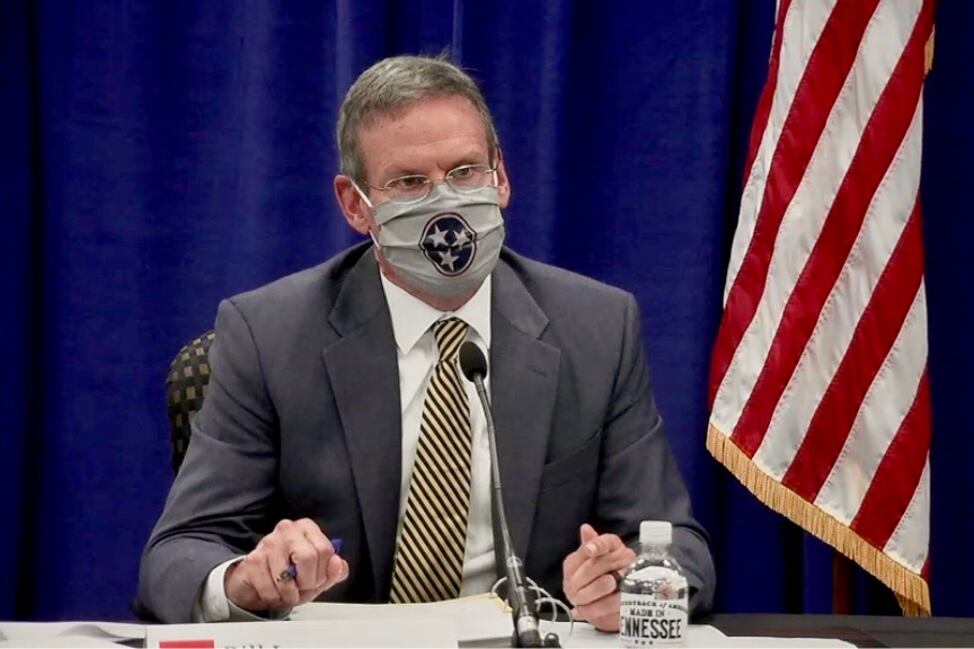Gov. Bill Lee wants to maintain funding for public schools in Tennessee’s next budget, even as a statewide decline in student enrollment would normally result in a decrease by tens of millions of dollars.
“We believe that districts will be held harmless; that’s what we anticipate,” he told reporters Tuesday, saying that schools should not be penalized next year for having fewer students this year during a pandemic. His comments came on the second day of weeklong budget hearings.
About 33,000 fewer students enrolled in Tennessee public schools this fall, down by about 3.5% from last year, for a total of 935,376, according to early enrollment data from the state education department.
The trends have worried school leaders. Not only are they concerned about students who didn’t show up, they’re eyeing how the declines could impact funding, which is largely allocated on a per-student basis. Adding to the challenge are the extra costs of keeping students safe and learning during the pandemic.
Last month, a state committee reviewing Tennessee’s education funding formula recommended keeping funding levels for the 2021-22 fiscal year the same as this year, if possible.
Lee agreed that’s a priority.
“That will be a very important topic with our office and with the legislature,” he said. “Ultimately, the legislature makes the decision according to the proposals that we make in the budget.”
Raising salaries for educators is another priority, he said, but made no promises there either.
“We certainly hope that there will be an opportunity for meaningful increases in teacher pay,” Lee told reporters.
A lot can happen with the economy and tax collections between now and next spring when the legislature votes on a new budget.
On Monday, a University of Tennessee economist and the state’s own revenue expert urged the governor to tread carefully.
“Things are getting better, but they’re likely to get better slowly,” said Bill Fox, director of UT’s Boyd Center for Business and Economic Research.
Fox added: “I think it’s a year to be very prudent on how this plays out.”
State revenues have grown by 2.2% since July, thanks largely to coronavirus relief money that Congress authorized when the economy ground to a halt this spring. But another economic stall is possible this winter as coronavirus cases continue to rise. And further federal help, if approved, is expected to be small in comparison to this year’s.
“We suspect we ought to be cautious,” Lee said after hearing reports from Fox and David Gerregano, the governor’s revenue commissioner.
Before the coronavirus emerged, Tennessee was on track to give its teachers a 4% raise for the current school year, but that amount dwindled gradually to nothing as tax revenues slumped.
Now teachers are working harder than ever — and they’re exhausted, said Education Commissioner Penny Schwinn.
“We are a quarter of the way into the school year, but it feels like the end of the school year in terms of the level of fatigue,” she said.
Schwinn would like to see teacher salaries go up in a “meaningful way,” but acknowledged the expense would be significant, especially as Tennessee faces so many unknowns.
“That will continue to be a major point of conversation,” she said of teacher compensation.
Lee asked leaders of state departments and agencies to come up with ways to cut their budgets by up to 12%.
Schwinn presented $6 million worth of reductions but said students shouldn’t be impacted. About $2 million will come from a renegotiated contract with Pearson, the state’s testing vendor.
Lee was clear that education should be spared major cuts this year.
“Obviously, the future of Tennessee depends on education funding,” he said.






